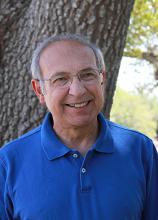The Last Summer of the Death Warriors
Review
The Last Summer of the Death Warriors
Francisco X. Stork received great critical acclaim for his novel, MARCELO IN THE REAL WORLD, a sympathetic and in many ways eye-opening portrayal of a boy with Asperger’s syndrome. Now Stork follows up the Schneider Family Book Award winner with THE LAST SUMMER OF THE DEATH WARRIORS, an equally thoughtful treatment of one boy bent on revenge, another focused on life and death, and the surprising friendship that grows between them.
Pancho has always approached life as an adversary; if an obstacle gets in your path, be prepared to fight like crazy. His fists have gotten him in trouble on more than one occasion. Now, his most recent fight has landed him at St. Anthony’s, an orphanage home. Instead of settling in there, however, he has just one thought on his mind: avenging the death of his developmentally disabled sister, who was recently killed in a hotel room. Pancho is still grieving the death of his father, and the combined weight of his loss and anger seems to hold him back from creating real friendships.
That is, until Pancho meets Daniel Quentin. Daniel (better known as D.Q.) uses a wheelchair to move around because he has a potentially terminal form of brain cancer that saps his strength and energy. He’s getting ready to head to Albuquerque for a new experimental form of treatment, but his main goal is to make it back to Casa Esperanza, where Marisol, the love of his life, works as an assistant with sick kids.
Pancho is not sure why he was chosen to accompany D.Q., or why D.Q. labels Pancho as a fellow “Death Warrior,” as D.Q. writes a Death Warrior Manifesto about living a life of purpose. All Pancho knows --- at least at first --- is that Albuquerque is the location of the one and only lead he has on his sister’s murderer. So, a gun secretly in his possession, Pancho goes with D.Q. to Casa Esperanza, where he also falls under the spell of the mysteriously alluring Marisol.
D.Q. and Pancho are fascinating characters in their own right. D.Q. --- a young man constantly dealing with his own mortality --- is simultaneously wise beyond his years and thoroughly convincing as a mature and intelligent but nonetheless scared teenager. When Pancho meets him, he thinks, “It was hard to imagine that the person speaking was his same age. The words, the voice, they all seemed to come from someone not just older, but ageless, if such a thing were possible.” Pancho, who enters into friendship and love kicking and screaming, is both a classic character --- the guy whose tough façade masks a vulnerable interior --- and a compelling, original one.
But the gradual development of the relationship between them is where Stork’s novel really shines. Both Pancho and D.Q. have much to offer each other, even if Pancho is slower to recognize his own value than he is to open himself up to D.Q.’s wisdom and friendship.
Anyone who is familiar with Cervantes’s DON QUIXOTE might recognize that this book is loosely based on that classic tale. Rather than a straightforward retelling, however, THE LAST SUMMER OF THE DEATH WARRIORS is a thoroughly original work that stands on its own perfectly well, and only grows richer when considered in conjunction with its literary predecessor. It’s a wonderful blend of philosophy, relationships and revenge --- the kind of novel that considers the Big Questions even as it tells a compelling tale.
Reviewed by Norah Piehl on March 1, 2010
The Last Summer of the Death Warriors
- Publication Date: January 1, 2012
- Genres: Fiction, Young Adult 12+
- Paperback: 352 pages
- Publisher: Scholastic Paperbacks
- ISBN-10: 0545151341
- ISBN-13: 9780545151344




